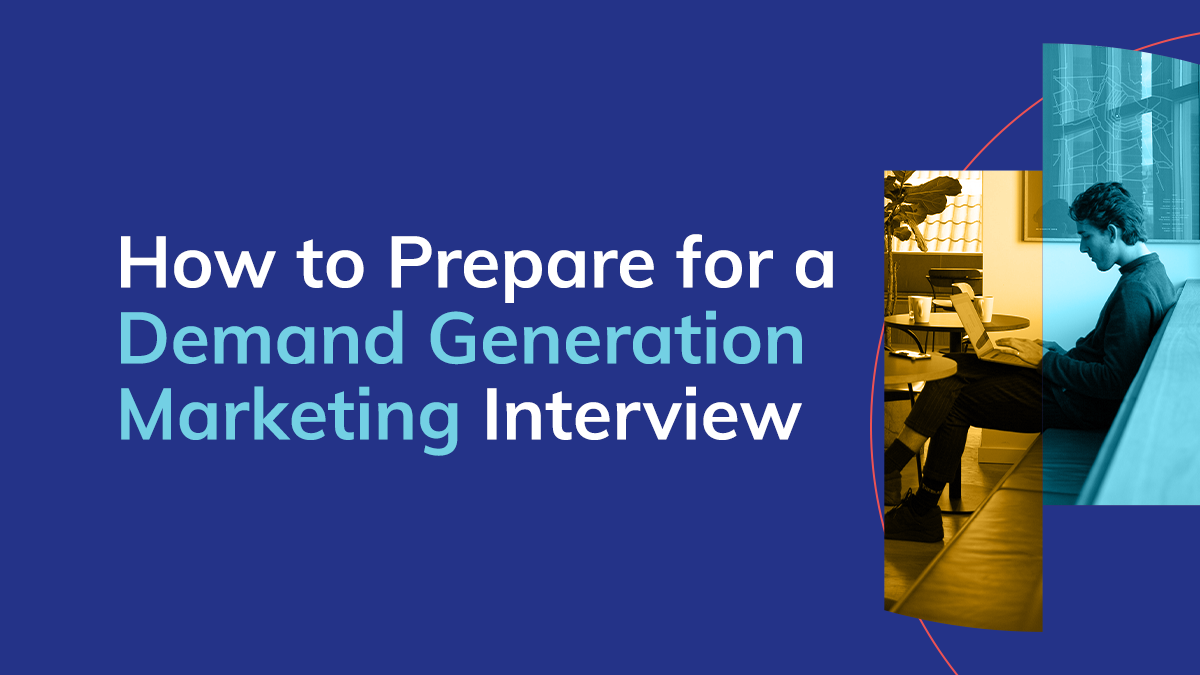
If you’re looking to land a job in demand generation marketing, then how you prepare for the interview is crucial. Today, demand generation marketers are vital to the success of any marketing strategy, and B2B tech companies are always looking for talented individuals who can help them generate high-quality leads and drive revenue.
But before you can land that dream job, you need to ace the interview. And in this article, we’ll cover everything you need to know to prepare for a demand generation marketing interview. From understanding the basics of demand generation to showcasing your experience.
Plus, we’ve got some demand generation marketing experts who give us their top tips too, so let’s dive in.
If you’re familiar with what demand generation marketing is, then skip forward to the interview preparation advice. But for those of you who are new to demand generation marketing, let’s first dive into what it is and how it fits into a marketing strategy.
First things first: let’s define demand generation marketing. Put simply, demand generation is the process of creating interest in and awareness of a company’s products or services. The goal is to generate high-quality leads that can then be nurtured and converted down the line.
To succeed in demand generation, it’s important to understand some key concepts and terminology. For example, you’ll need to be familiar with the buyer’s journey (the process a potential customer goes through to become aware of, evaluate, and purchase a tech product or solution) and the B2B marketing funnel (a framework for tracking a potential customer’s journey from awareness to conversion).
The buyer’s journey is a crucial concept in demand generation marketing. It’s important to understand the different stages a potential customer goes through, from the initial awareness of a problem or need to the consideration of different solutions to the ultimate decision to purchase a product or service. By understanding the buyer’s journey, you can create targeted campaigns that speak directly to potential customers at each stage of the process.
The marketing funnel is another important concept in demand generation marketing. It’s a framework for tracking a potential customer’s journey from awareness to conversion, and it’s typically broken down into several stages. At the top of the funnel is the awareness stage, where potential customers become aware of your company and its products or services. From there, they move to the consideration stage, where they evaluate different solutions to their problem or need. Finally, they reach the decision stage, where they make a purchase decision.
Demand generation is just one piece of the marketing puzzle, but it’s an important one. It sits at the top of the marketing funnel and is focused on creating awareness and interest. Without effective demand generation, it’s much harder to generate high-quality leads that can eventually lead to revenue.
As a B2B demand generation marketer, you’ll be responsible for creating and executing campaigns that drive interest in your company’s products or services. This might include everything from email marketing to content marketing to social media advertising.
One of the keys to success in demand generation is to create targeted campaigns that speak directly to potential customers at each stage of the buyer’s journey. For example, you might create a blog post that speaks to potential customers in the awareness stage, providing valuable information about a problem or need they might have. Or, you might create a case study that speaks to potential customers in the consideration stage, highlighting how your company’s tech solution has helped other companies solve similar problems.
There are countless ways to execute a demand generation strategy, but some channels and tactics are more common than others. For example, email marketing is a staple for many demand generation marketers, as it allows you to communicate directly with potential customers who have already expressed interest in your company. Content marketing is another popular tactic, as it allows you to create valuable resources (like blog posts, ebooks, or white-papers) that can attract potential customers to your website.
Other common channels and tactics include social media advertising, paid search advertising, and events (like webinars or conferences). Social media advertising can be a great way to reach potential customers on platforms like Facebook, Twitter, and LinkedIn. Paid search advertising (also known as search engine marketing, or SEM) can be an effective way to drive traffic to your website from search engines like Google or Bing. And events like webinars or conferences can be a great way to connect with potential customers in person and provide them with valuable information about your products or services.
Ultimately, the key to success in demand generation marketing is to create targeted campaigns that speak directly to potential customers at each stage of the buyer’s journey. By understanding the key concepts and terminology of demand generation and using common channels and tactics effectively, you can generate high-quality leads that can eventually lead to revenue for your B2B tech company.
Hiring? Market Recruitment is a specialist demand generation recruitment agency
Before your interview, it’s important to do your homework on the company you’re interviewing with. This includes researching their demand generation efforts. Look at their website, social media accounts, and any other marketing materials they have available. This will give you a sense of their brand voice, content strategy, and overall approach to demand generation.
When analysing the company’s demand generation efforts, it’s important to pay attention to the types of content they are creating. Are they focused on blog posts, social media updates, or white-papers? Are they creating videos or webinars? By understanding the types of content they are creating, you can get a sense of how they are trying to engage with their audience.
It’s also a good idea to look for any case studies or success stories that the company has shared. This will give you a sense of what they consider to be a successful demand generation campaign and will help you understand the metrics they care about.
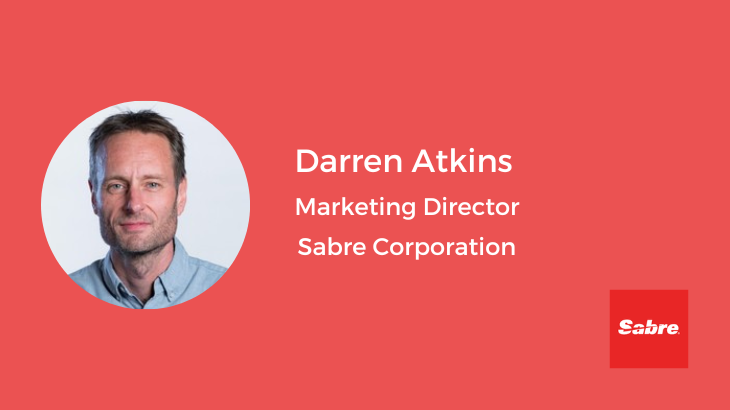
‘Responses will clearly depend on the nature and seniority of the role, but candidates should be able to critique the company’s current efforts by considering their website, social channels, presence in search, etc., and by comparing them with key competitors from both a demand generation and demand capture perspective. Here’s how I would critique each area:
Website:
Social:
Search:
In addition to researching the company, it’s important to stay up-to-date on industry trends and best practises. This will help you demonstrate your knowledge and passion for demand generation marketing, and it will also help you propose new and innovative ideas during the interview.
One trend in demand generation marketing is the use of personalised content. By creating content that speaks directly to the needs and interests of your audience, you can increase engagement and drive conversions. Another trend is the use of video content, which has been shown to be highly effective in demand generation campaigns.
To stay informed about industry trends and best practises, subscribe to industry blogs and newsletters. Attend webinars and events, and follow industry influencers on social media. By staying up-to-date on the latest news and trends, you can position yourself as a thought leader in demand generation marketing.
Finally, it’s a good idea to take a look at your potential employer’s competitors. How are they approaching demand generation? What strategies or tactics are they using? This will give you a sense of the competitive landscape and help you identify areas where your potential employer can stand out.
When analysing competitors’ strategies, pay attention to the types of content they are creating, as well as the channels they are using to promote that content. Are they focused on social media, email marketing, or other channels? Additionally, pay attention to the messaging they are using in their demand generation campaigns. Are they focusing on product features, or are they highlighting the benefits that their product or service provides to their customers?
By understanding your potential employer’s competitors, you can propose new and innovative ideas that help them stand out in a crowded market. Additionally, by understanding the strengths and weaknesses of their competitors, you can help your potential employer position themselves as a leader in the industry.
Interviews can be nerve-wracking, but with the right preparation, you can feel confident and ready to tackle any question that comes your way. One area that you should be prepared to discuss is your experience in demand generation marketing. This is a critical aspect of many marketing roles, and employers will want to know that you have the skills and knowledge necessary to succeed.
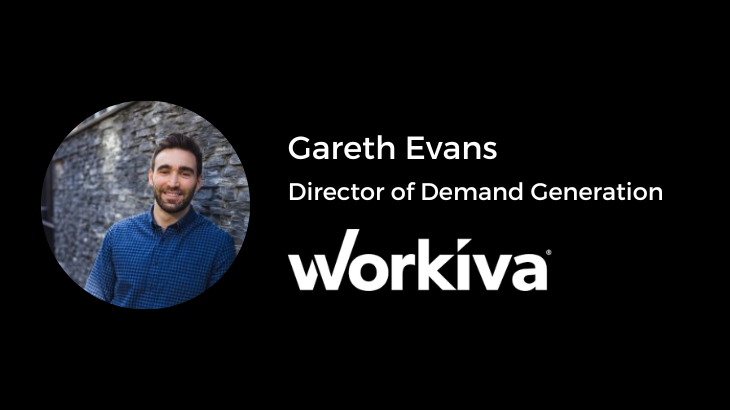
‘My number one interview preparation tip is to focus on the introduction to create a strong first impression. Any good hiring manager has read your CV and isn’t looking for a verbal re-run. They’re looking for you to be able to succinctly market yourself in a way that is interesting and relevant to the role. Yes, you can use some of your experience to highlight this, but make sure you weave in some of your marketing philosophies and approaches to paint a picture of how you work. Keep this to a few minutes tops; you want to keep as much time as you can for quality two-way conversation.
Remember, if you can’t create demand for yourself, you reduce your audience’s confidence that you can create demand for their organisation.
Here are my practical tips for doing this:
When discussing your experience in demand generation marketing, it’s important to be specific and provide examples. Talk about your previous roles and the campaigns you executed. Highlight any successful campaigns and discuss your approach to driving interest and leads.
Some employers may also ask you to provide examples of specific tactics or channels you’ve used in the past. Be prepared to discuss your experience with email marketing, social media, content marketing, and other tactics commonly used in demand generation.
In addition to questions about demand generation, you may also be asked about your broader marketing skills and knowledge. This could include questions about branding, messaging, or digital marketing concepts like SEO and PPC.
To prepare for these types of questions, it’s a good idea to review common marketing terminology and concepts. Think about how you can apply these concepts to the demand generation context. For example, how can you use SEO to drive more traffic to your landing pages?
Scenario-based and behavioural questions are designed to test your problem-solving skills and ability to work well with others. These types of questions might ask you to provide solutions to hypothetical problems, describe how you’ve handled challenges in the past, or explain how you work with cross-functional teams.
To prepare for these types of questions, review common scenario-based and behavioural interview questions. Think about your own experiences that might demonstrate your ability to handle these types of situations. For example, have you ever had to resolve a conflict with a coworker? How did you handle it?
By preparing for these types of questions, you can feel confident and ready to impress during your interview.
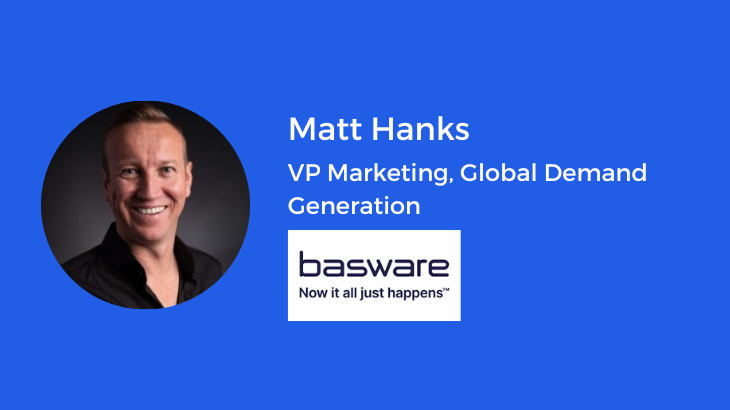
‘When I am looking at taking on new demand generation experts into the team, one of the critical areas for me that will absolutely mean success or failure is a demonstrable approach and mindset to working with sales colleagues.
Growing the business sits with everyone (a trendy term to use is “growth mindset”), but arguably sales and marketing are at the forefront. And I’d like to hire someone who gets this. Someone who doesn’t see sales versus marketing and opens a can full of works like “Where are my leads, Marketing” or “Why have you not followed this one up, Sales”. To deliver the business growth and the demand to ensure this, the sum of the parts is the ONLY way. I’d like to see experience in:
Finally, I will always get a reference from previous sales teams, so keep that in mind.’
Finally, it’s important to showcase your demand generation portfolio during the interview. Be prepared to discuss successful campaigns or projects you’ve executed in the past, including the metrics you used to track success and the tactics you used to drive interest and leads.
It’s also a good idea to come prepared with visual aids (like slide decks or analytics dashboards) that can help you demonstrate your results.
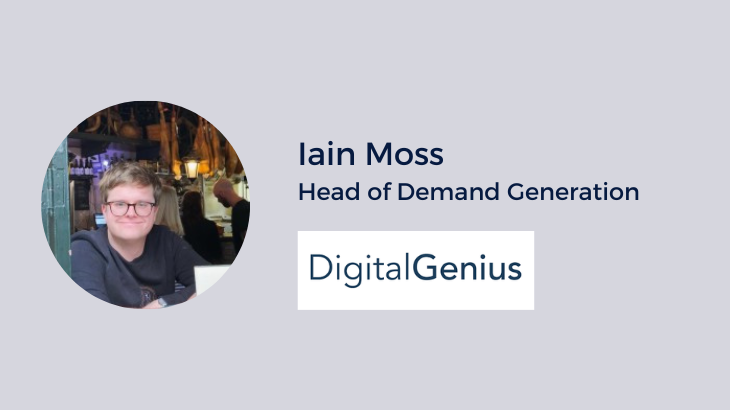
‘The number one tip for me is being able to show what you did to drive revenue for the business and, more importantly, what those results are.
So, the number of deals created or closed, pipeline size, etc. are more important than impressions or leads. But you need to put it in context because a pipeline of, say, £1 million is different for an early-stage start-up vs., e.g., Amazon.
But what if, for whatever reason (lack of product-market fit, very long sales cycles, immature sales organisation), it’s impossible to demonstrate the revenue numbers in a positive way?
Two things:
As an example, if a candidate says that things failed because of “lack of product-market fit,” then I would want to understand what that really meant. It’s hard to convey on a CV, but in an interview, you’d want to hear about some persistence, some experimentation, some adjustments, or whatever.
Likewise, if the lack of metrics is due to long sales cycles, then show me a before and after picture. What does the pipeline look like, etc.’
Demand generation is a highly analytical field, so it’s important to demonstrate your data-driven approach during the interview. Be prepared to discuss how you use metrics and data to track success, optimise campaigns, and generate insights that can drive future strategies.
If you have experience with specific analytics tools (like Google Analytics or Marketo), be sure to mention it!
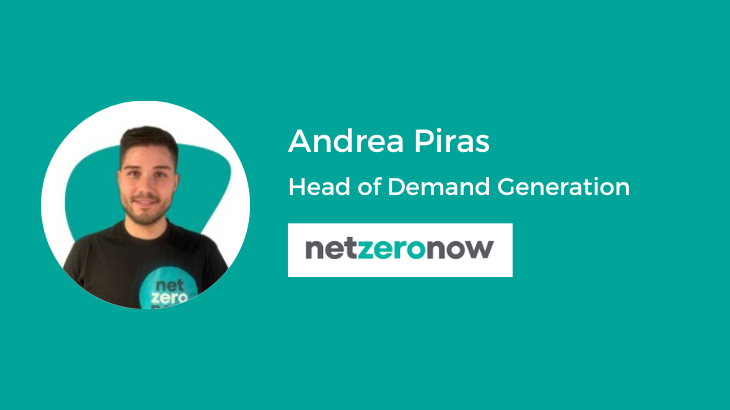
‘Understand the entire demand generation funnel, not just the top or middle. A well-rounded knowledge of each stage—from attracting to closing—will set you apart. But, even more crucially, be ready to discuss how you measure success at each stage. Employers are looking for candidates who not only understand tactics but also know how to measure and optimise those tactics for better ROI. Whether it’s cost per lead, conversion rates, or lifetime value, having a solid grasp on the metrics that matter will showcase your strategic thinking and results-driven mindset.’
Finally, don’t forget to showcase your creative and strategic thinking during the interview. Demand generation marketing is all about finding innovative ways to drive interest and generate leads, so it’s important to demonstrate your ability to think outside the box.
Be prepared to present ideas for new campaigns or to provide suggestions for how your potential employer can optimise their existing demand generation efforts.

‘So for me, there are two steps.
Step one: I think it’s important to take into account the big picture. So what’s the big picture? The big picture for me is that a customer’s journey should be pretty constant from the first time that they hear about you to the time that they sign on the dotted line.
So having, I guess, a constant customer journey where there’s a seamless flow between different team members who might handle generating leads, qualifying leads, converting those leads into a sale, and then ensuring those customers have a good experience using the product or service.
Now how do you impress? I think you communicate this and then relay it back to them in a way that they’ll understand by reverse engineering it from their targets.
So take their sales target—let’s say it’s £10 million—and their average deal size, and some quick math, and you have how many deals they need to sign in a year to hit that target.
From there, you can ask them what their current conversion rates are from MQL to SQL to closed deals.
Note: Always use the least optimal conversion rates here.
So that gives you an idea of what activity needs to be generated to hit the goal, e.g. marketing needs to produce 5,000 MQLs to hit the target with the current conversion rates.
Step 2: Now you can start to dig into how you get those leads. How?
You need information from the interviewer to determine the next steps. There’s no point going into detail on every channel within demand generation and how that can generate leads since there are so many tangents within each area. These are the kinds of questions I would ask:
The top two cover what’s working’. The bottom two cover what’s not working/what’s missing’. This is really valuable information to have before deciding where to go in the granular. Each of these responses invites further discussion at that granular level.
By doing this, you’re explaining to them how you can make an impact, showcasing how your marketing brain works, and opening up a conversation with your interviewer about how they do marketing, and what impact it currently makes.
You never know; after exploring this, you might realise that this isn’t the demand generation job for you.’
Preparing for a demand generation marketing interview can be daunting, but with the right approach, you can set yourself up for success. By understanding the basics of demand generation, researching the company and industry, preparing for common interview questions, and showcasing your experience, you’ll give yourself the best possible chance of landing that dream job.
Subscribe to our fortnightly newsletter to hear about our latest podcasts, blogs, career advice & jobs.